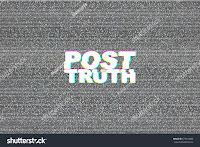Yoon Suk-yeol, the presidential candidate of the conservative People Power Party, won the presidential election on March 9. The Catholic Peace Weekly columnist gives the readers his views on the election.
The 20th presidential election, which started with the registration of candidates in July last year, ended the 240-day long journey. This period was solely the 'people’s time'. The people elected Yoon Suk-yeol, with no political experience, as president. Except for a coup d'etat, this is the first time in constitutional history. Concerns about the non-political president were also reflected in the votes. 0.7 percentage points difference. Half of the voters (47.83%) did not support the elected candidate. It was the result of the most unpopular presidential election of all time.
This election was a negative one in which the tasks of the times and vision for the future were missing. The people were fed up with the exposure of corruption and suspicion. Conflicts, divisions, and hatred among ideology, region, gender, generation, and class have reached a dangerous level. However, the unfavorable feeling toward the presidential candidates was paradoxically expressed by high political participation and turnout. The final voter turnout was 77.1%, and the two-day advance turnout was 36.93%, a record high. Although there are important duties and rights as a citizen, it was an expression of intense longing for a new era.
What was the public sentiment expressed in this election? For the president-elect, it is a warning not to be arrogant and a strict command for unity and cooperation. It also contains the meaning of a warning that the brakes may be applied at any time to the operation of state affairs.
President-elect Yoon Suk-yeol's presidential slogan was "Yoon Suk-yeol called out by the people." However, half rejected Yoon-elect. Fortunately, President-elect Yoon said in his election speech, "There will be no liberals, conservatives, or the (Providence that voted against him) in front of us." Archbishop Jeong the Archbishop of Seoul, also asked the new president to "heal the conflicts and be a healing President" in an interview after the vote.
In front of President-elect Yoon Suk-yeol, real estate problems, economic inequality, generational conflict and polarization, youth unemployment, and the climate crisis are piled up. To solve this problem, it is necessary to carefully examine the reality of the promises made during the election period. Some of the promises that fueled gender conflict need reexamination for national unity.
In addition, although he was elected based on 'regime change', the policies of the current government, which are showing results, must be continued. In particular, foreign and security policies for peace on the Korean Peninsula should take a long-term and multi-dimensional approach and put the national interest first. In addition, among the promises made by Democratic Party Candidate Jae-Myung Lee, who received half of the support, policies that fit reality and have practical benefits should be actively accepted. Only then will the people believe in the sincerity of President-elect Yoon's national unity and cooperation.
The five-year term of the president is time spent with the people. This is not the time to be greedy only for achievements to increase the "name-value" of the president. This is what is written on the banner of President-elect Yoon Suk-yeol's election greetings: "We will create a unified Korea." This is a promise to the people and the goal of state management.
What should President-elect Yoon do first? He must first approach humbly half of the people who did not support him, talk, and compromise. If he can lead the division of national opinion to national unity during his five-year term, President-elect Yoon Suk-yeol will be recorded as the greatest president in constitutional history.






